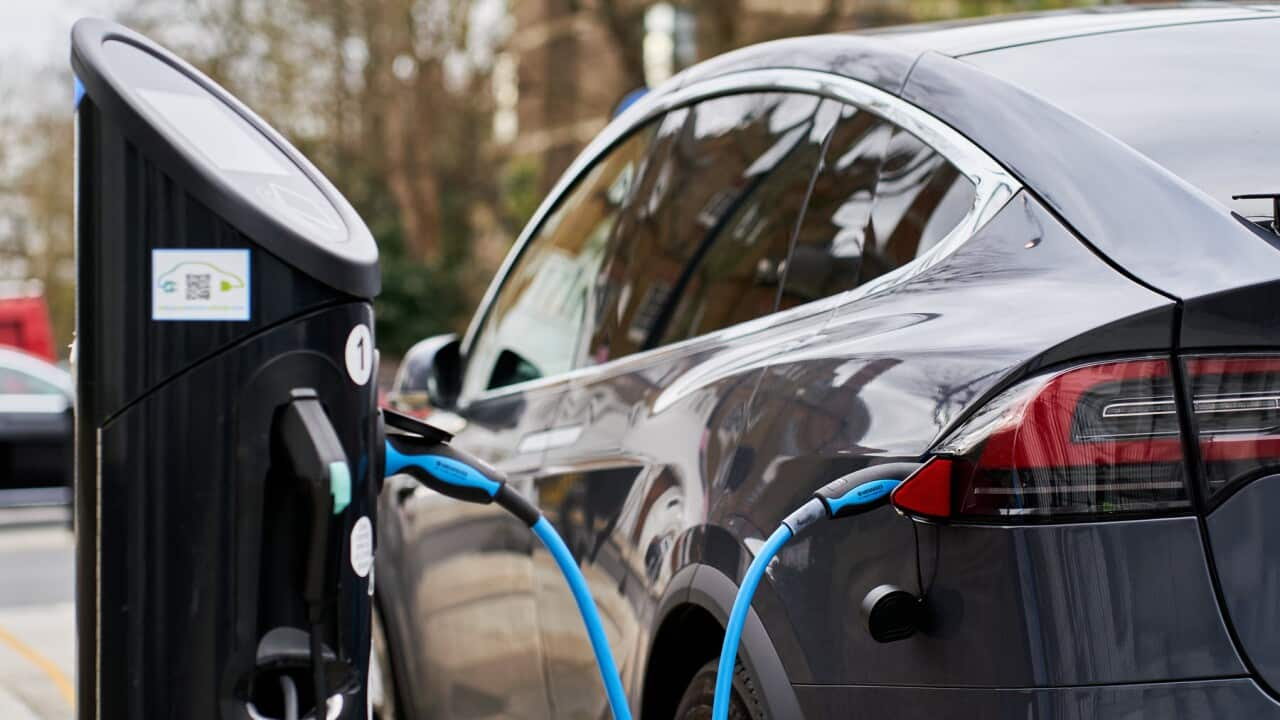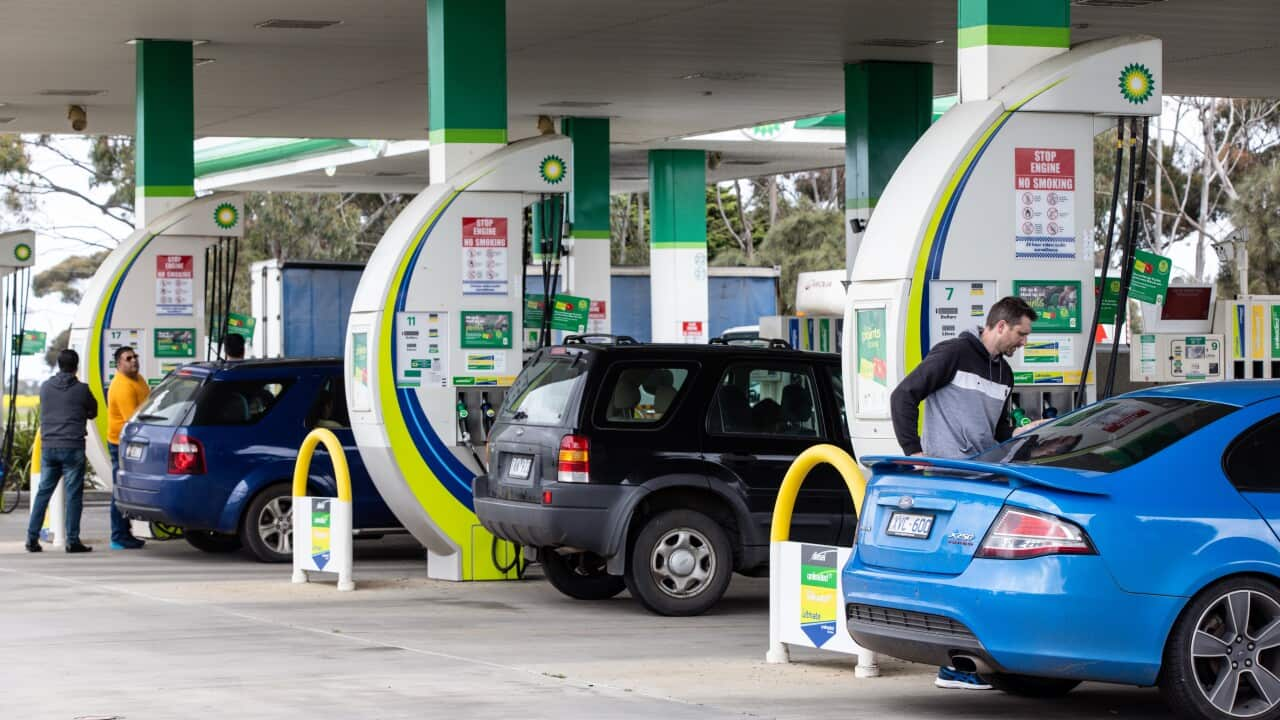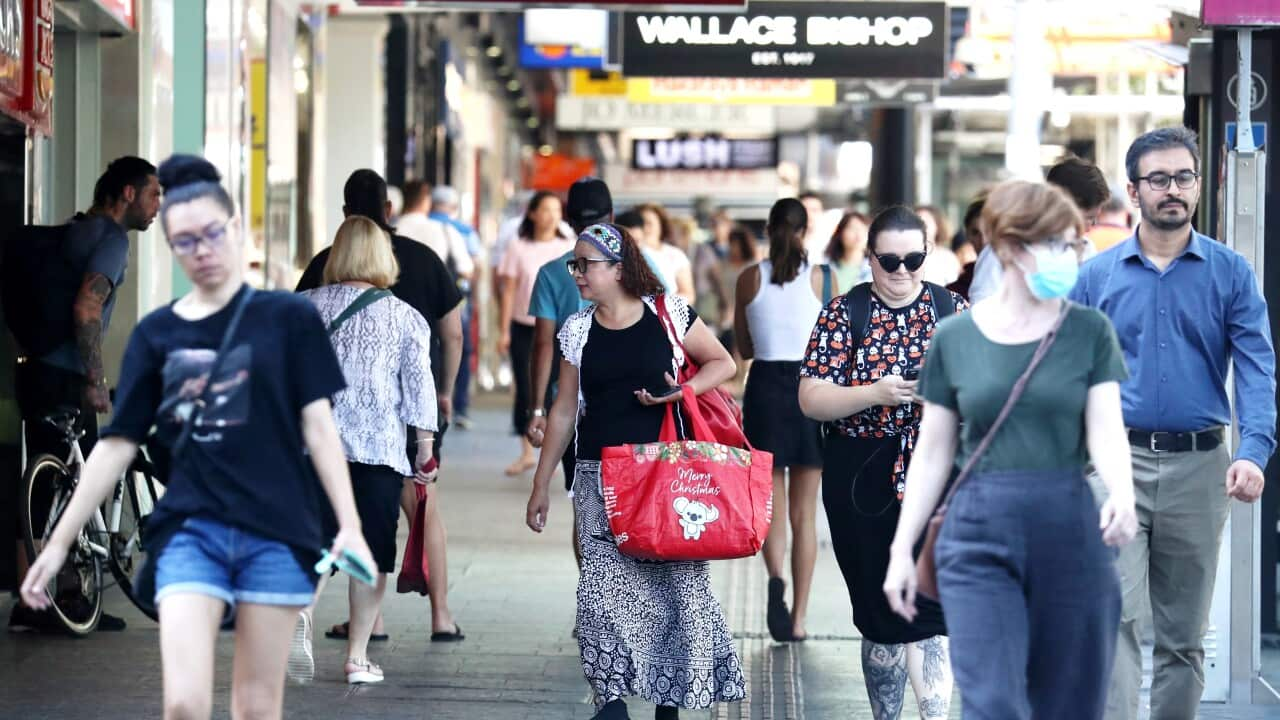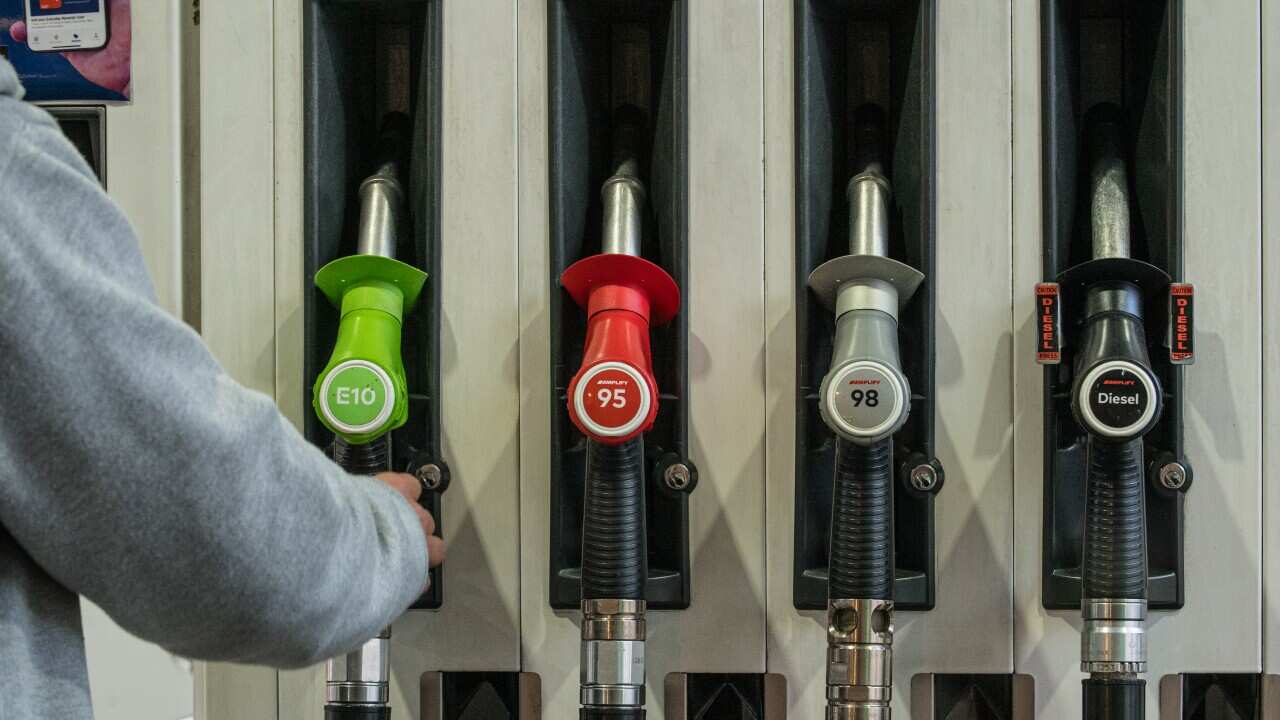Key points
- Car-sharing services are extending into electric vehicles.
- Shared EVs are being offered to apartment blocks, office buildings and hotels.
- Experts say the trend could also have significant consequences for car ownership in Australia.
What if you didn't need to own a car? What if you could just pop downstairs and borrow one whenever you need a ride?
That is the proposition being made to residents in an increasing number of Australian apartment blocks, office buildings, hotels and even retirement villages.
It's part of a new trend in transport, an extension of car-sharing services, and a way many drivers are trying electric vehicles for the first time.
Transport experts say the trend could also have significant consequences for car ownership in Australia, and the number of car parks we see in future buildings.
The trend falls under the umbrella of "shared mobility" and it is being introduced as an amenity in new developments, large buildings where car parks are scarce, and urban apartment blocks where residents want to reduce their costs.
Ohmie Go founder and chief executive Kyle Bolto said the company had 14 shared mobility spaces operating in buildings around Australia, another 20 under contract, and he wanted it to be "in at least 100 buildings by the end of 2023".
Convincing building owners to take up the service was simple, he said, once he explained how it worked.
"We've got a bit of a throwaway line: we say it's like having a pool but useful," Mr Bolto said.
Shared mobility services like Ohmie Go offer electric car fleet packages. The company provides vehicles as well as chargers and electrical infrastructure, insurance, registration, regular detailing, roadside assistance, and a software system for residents to book and pay for vehicles.
Residents are charged modest fees to rent the shared cars — driving a Tesla Model 3 for an hour costs $16.50 from Ohmie Go, for example — and Mr Bolto said the service was changing the way residents viewed their own vehicles.
"We are genuinely now starting to see some of our users say, 'why on earth do I own a car? This makes no sense'," he said.
"We have a mission to change the way people think about vehicles.
"For certain demographics in outer suburbs, regional areas, rural areas, we understand (owning a car), but in dense urban environments, we're really trying to use the transition to electric vehicles as an excuse to say, 'you don't have to buy your own car that sits there 90 per cent of the time'."
Ohmie Go recently introduced a shared Tesla Model 3 at the Europa on Alma retirement village in St Kilda, Victoria, and two Teslas in an office block in Rhodes Corporate Park, Sydney.
While residents were often excited to see the electric cars roll in, Luke Rust, who created car-sharing service Outbound, said developers were more motivated by what savings they could deliver.
Less cars, less parking spaces
Introducing a shared electric vehicle fleet, he said, not only added a selling point for developers but could help make the case for including fewer car parks in a building's design.
"If people have got access to shared vehicles, they don't need to have their own dedicated private vehicles on site and developers can get away with having fewer private car parking spaces," he said.
"The trajectory is to have far less private car parking and far more shared mobility."
Mr Rust admitted it was still early to see major changes to car park requirements — "councils are still worried about 90 per cent of people in a building owning cars and parking them around the city" — but being able to provide statistics from these projects could alter opinions.
"They might change planning regulations as we see that behavioural shift," he said.
Mr Rust, who operates a shared Tesla at the Manta at Sharks Gold Coast hotel, said the service also provided an opportunity for people to drive an electric vehicle for the first time, helping to speed up the transition to zero-emission transport.
The greener vehicles were more practical for shared use, he said, due to lower maintenance costs and no need for off-site refuelling.
"Operationally, electric vehicles make a lot of sense in this type of service because they always return to base and we can host a charger on site," he said.
Swinburne University future urban mobility professor Hussein Dia said the concept behind the shared EV fleets was not new — "it's getting some traction in Europe and North America" — but it could have unexpected environmental and cost-of-living benefits in Australia.
"When you think about the total cost of ownership, by the time you buy the vehicle, and then you pay registration fees and insurance, it's actually a very big expense," he said.
"Considering the average vehicles spend 90 per cent of their time parked in garages, from an investment point of view, it is very bad. There may be better ways of using that money."
A recent survey by Uber, conducted by Censuswide, found the average cost of owning a vehicle totalled $14,799 each year, even though 59 per cent of owners said they were using their cars less.
Even though few things rivalled "the convenience of a private vehicle," Mr Dia said, some owners would use "shared mobility" services like these, and car-sharing services like Turo and Uber Carshare, to cut costs.
"There is some anecdotal evidence these projects are helping families to do away with their second car," Mr Dia said.
"A lot of families could say they don't need a weekend car; they can sell that one and just use the other. For the rest of what they need, they can hire a car on demand."












